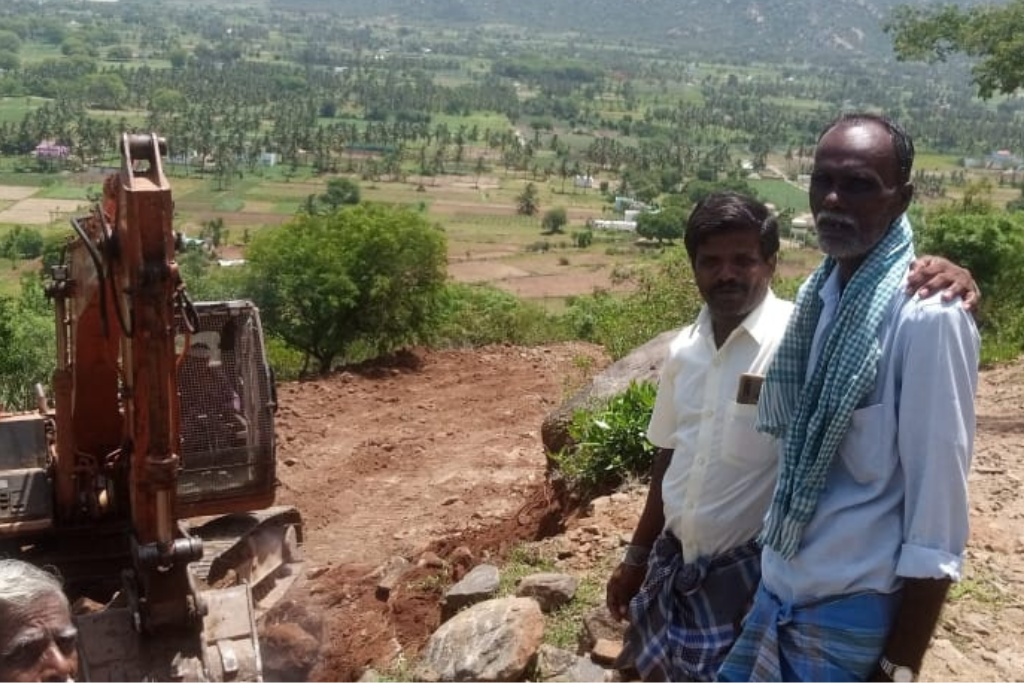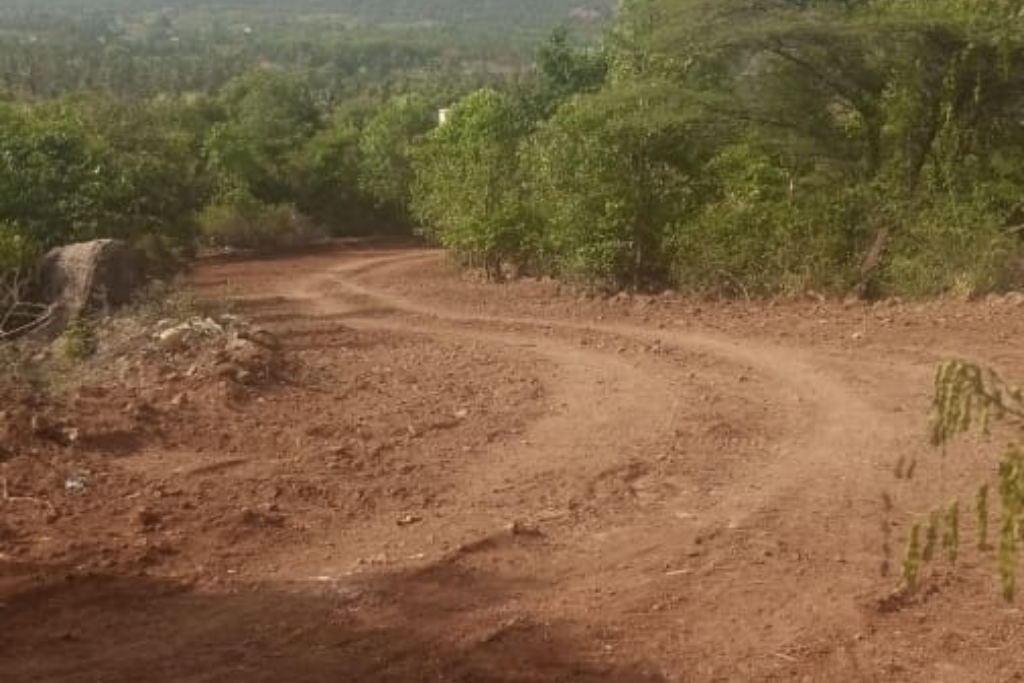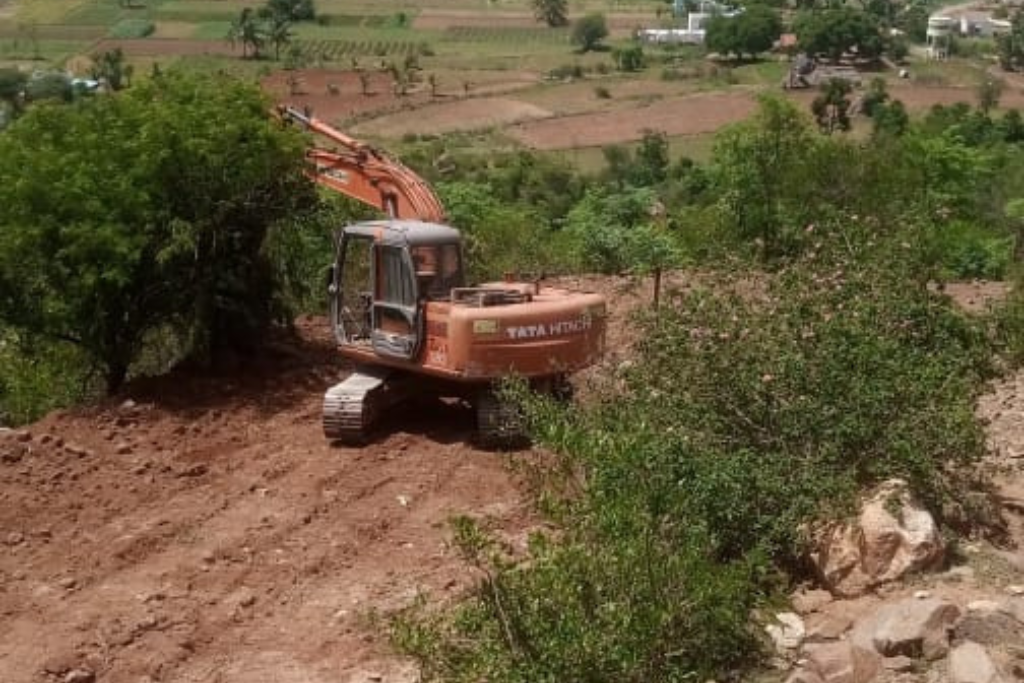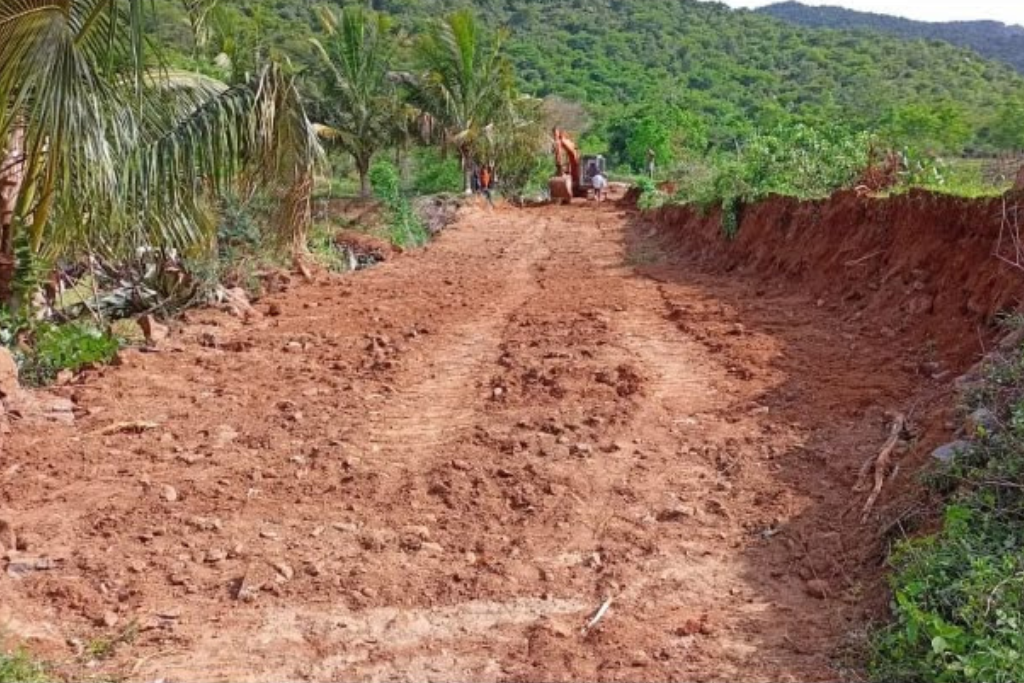
Tamil Nadu villagers take it upon themselves to build road
With no redressal of their decades-long request, Kottur Malai villagers pool money and labour to lay a six-kilometre mud road to their village.

With no redressal of their decades-long request, Kottur Malai villagers pool money and labour to lay a six-kilometre mud road to their village.
In the little hill settlement of Kottur Malai in Tamil Nadu, almost all the households narrate their own stories of woe that they have endured due to the lack of a suitable road.
“My husband passed away from a snakebite because we couldn’t get him to the hospital in time. I’ve endured a great deal of hardship to keep the family going since he left,” said Easwari. The 45-year-old was one of the many villagers labouring in October to lay a six-kilometre road to their village.
About 50 women, over 50 men and some youngsters made up the rest of the crowd laying the road. In fact, each of the 150-odd households in the village jointly participated in the task, pooling their money and labour.
The serene village of Kottur Malai in Pennagaram taluk of Dharmapuri district, known for its low human development index, has long been isolated. It has remained untouched by the trappings of modernity and the continuous stream of visitors that mark the other hills in the region.
However, this remoteness brought its own set of challenges for the 450 inhabitants, including tribal people, who have endured years of hardship due to lack of proper infrastructure. The inhabitants of Kottur Malai are subsistence farmers who cultivate millets, horse gram, groundnut, maize and flowers. Remarkably, they have preserved their pristine soil by using only natural ingredients, avoiding chemical fertilisers and pesticides.
Also Read: India’s most haunted villages

Donkeys serve as the primary means of transportation for taking their produce to the market and carrying back essential goods.
The lack of proper road connectivity has hindered the community’s development. It has impeded the construction of essential buildings, including the government middle school, forcing the villagers to enrol their children in government hostels in nearby towns.
“When I studied in our village elementary school there used to be 80-90 students, but now only 11 students come to the school. This drastic decline in enrolment is solely due to the lack of roads. People prefer putting their children in the hostel in Palakode (about 30 km away),” said Ramalingam (45), one of the residents of Kottur Malai.
According to him, without proper roads, the teachers who come from far away are able to reach the school only by 12 noon. But they return at 2 pm itself, fearing attack by wild animals if they go back late in the evening.
“In the absence of a proper road, taking pregnant women or people injured in wild animal attacks to the hospital used to be very difficult. In the last six years, 10 people died as they could not be transported to a medical facility in time,” said Marappan, the village chief.
Also Read: Where waste ‘lights up’ villages

Human-wildlife interactions involving elephants and hyenas are a constant threat here. Frequent snakebite fatalities have also taken a toll on the community due to difficulties in reaching medical facilities in time.
The people of Kottur Malai boycotted the last Assembly election as their decades-long demand for a road was not met.
And then, after years of seeking assistance from officials and politicians, they recently decided to take matters into their own hands. In a remarkable display of unity and determination, the families pooled their resources, each contributing Rs 10,000 to 20,000, to lay a temporary 6 km mud road from the foot of the hill to their hamlet.
The forest department, which had been objecting to the laying of the road in the area, also finally granted its permission. This approval marked a significant turning point in the people’s struggle.
“The forest department has given permission for the road work and so the villagers are not violating any rule in laying the road,” said Dr S Senthilkumar, the Member of Parliament from the Dharmapuri constituency.
But the process wasn’t without hardships.
Also Read: Why a road is a roadblock for Bonda Tribes in Odisha

“While working on the road construction, I seriously hurt my leg,” says Sinnamal, one of the women assisting with the work. “But I can endure the pain as long as our wish for a permanent road becomes a reality.”
While the people of Kottur Malai have taken the initiative to lay a temporary road, they recognise its limitations. They stress the urgent need for a full-fledged metal road to provide a permanent solution to their woes.
“We have laid the road but this is only a temporary solution. We expect the government to give us a permanent, durable road. If the government continues to neglect our demand we will not hesitate to boycott the upcoming Lok Sabha polls like we did during the last state Assembly election,” said Gopal, one of the villagers.
Acknowledging the community’s demands, Block Development Officer P. Kalpana said a proposal has been sent to the government. She however expressed surprise at the community’s independent road-building efforts.
As the people of Kottur Malai await the government’s response to their long-standing demands, their story serves as a testament to the power of community unity and the human spirit in the face of adversity.
Also Read: Kulasai Dasara comes alive with devotion and delight
The lead image shows villagers laying the road with an earth mover in Kottur Malai. (Photo by George Rajasekaran)
George Rajasekaran is a journalist based in Tamil Nadu.